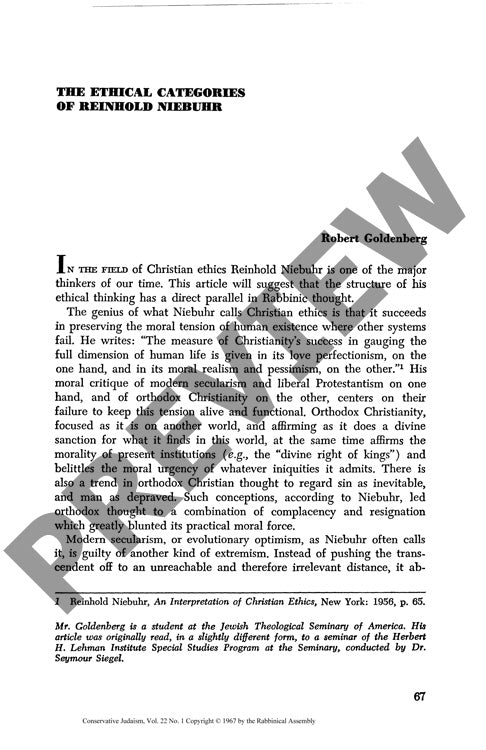The Ethical Categories of Reinhold Niebu
Couldn't load pickup availability
Reinhold Niebuhr's Christian ethical framework shares remarkable structural parallels with Rabbinic thought, particularly in how both traditions navigate the challenging space between moral idealism and practical reality. Through comparative theological analysis, Goldenberg demonstrates that Niebuhr's ethical system charts a middle path between orthodox Christianity's otherworldly focus and modern secularism's utilitarian approach. At the heart of Niebuhr's framework lie two central concepts: the impossible yet relevant "law of love" derived from Jesus's teachings, and the recognition of human imperfection rooted in prophetic tradition. Niebuhr argues that love must be translated into justice for practical application, as pure love remains unattainable in historical circumstances. The love-justice dialectic in Niebuhr's thought functions similarly to the Rabbinic concept of lifnim mishurat ha-din (beyond the letter of the law), with both traditions employing law as a minimum ethical standard while maintaining higher ideals that transcend legal requirements. While differences exist—particularly regarding the covenant community's role in Judaism versus Christianity's individual salvation focus—the structural parallels reveal shared approaches to reconciling transcendent moral demands with human limitations. This comparative analysis illuminates how both traditions navigate the tension between absolute ethical imperatives and pragmatic moral implementation, suggesting valuable cross-traditional insights for understanding religious ethics.

More Information
-
Physical Description
-
Publication Information
Published 1967
ISBN
-
Publication Credits
Robert Goldenberg

